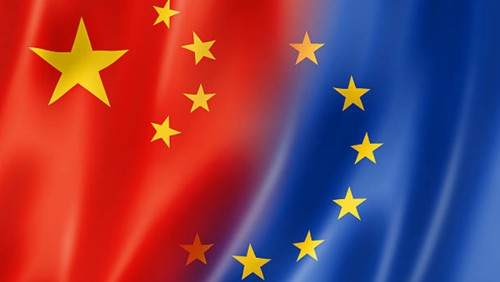In certain ways, China has had a big impact on Macau’s gambling revenue. While it hasn’t been intentional, the trade war with the U.S., protests in Hong Kong, a weaker domestic economy and a strict anti-online gambling stance have been responsible for weaker gambling action in the city. According to one analyst, this pressure could soon spread into Europe, as well, causing its gaming industry to suffer.
 Paul Leyland is a partner at Regulus Partners, a strategic consultancy firm out of the UK. He spoke at the KPMG Gaming eSummit in Malta this week and, during his keynote presentation, expressed his views that China is going to try to exert pressure on the European Union (EU) and its iGaming industry. He offered, “One of the things we think we’re going to see from a geopolitical standpoint – and we’re already seeing the noises coming through – is China really not liking online gambling.”
Paul Leyland is a partner at Regulus Partners, a strategic consultancy firm out of the UK. He spoke at the KPMG Gaming eSummit in Malta this week and, during his keynote presentation, expressed his views that China is going to try to exert pressure on the European Union (EU) and its iGaming industry. He offered, “One of the things we think we’re going to see from a geopolitical standpoint – and we’re already seeing the noises coming through – is China really not liking online gambling.”
Leyland continued, “China hasn’t liked gambling, even its own regulated gambling, for some time and we’ve seen that with the sheer number of unregulated, land-based gambling operations China has disrupted across Asia, which has seen thousands of people arrested and hundreds of millions of dollars seized. The online industry hasn’t tended to notice what China has been doing because it doesn’t disrupt the online environments we’re focused on.”
China has been trying to convince other Asian nations to follow its lead and crackdown on online gaming, but not without any clear or legitimate reasons behind the push. Cambodia bowed to the country’s efforts and announced this past August that no more online gaming licenses would be issued, further stating that existing licenses would not be renewed when they expire. China also tried similar tactics in the Philippines, but these have, until now, been ignored.
Leyland continued, “But we’re seeing a huge channel shift in Asian markets away from land-based points of payment to direct online. The Chinese government has noticed that, doesn’t like it and is already putting a huge amount of pressure on the Philippines.
“This is a level of pressure that China can exert pretty much globally and if you asked any politician anywhere in the world what do you like more, online gambling or China, it’s a really easy choice for them to make. So, we think that geopolitical tension around China is going to keep bubbling up and will have some really interesting implications for the industry that we probably haven’t properly thought through yet.”
The EU is more likely to follow the example of the Philippines and not cater to the whims of China’s rulers. While the country has the right to govern itself how it sees fit, even if this means maintaining control over every move citizens make, the EU is more cognizant of the economic benefits gambling has, especially online gambling, and shouldn’t be deterred by China’s opinion.